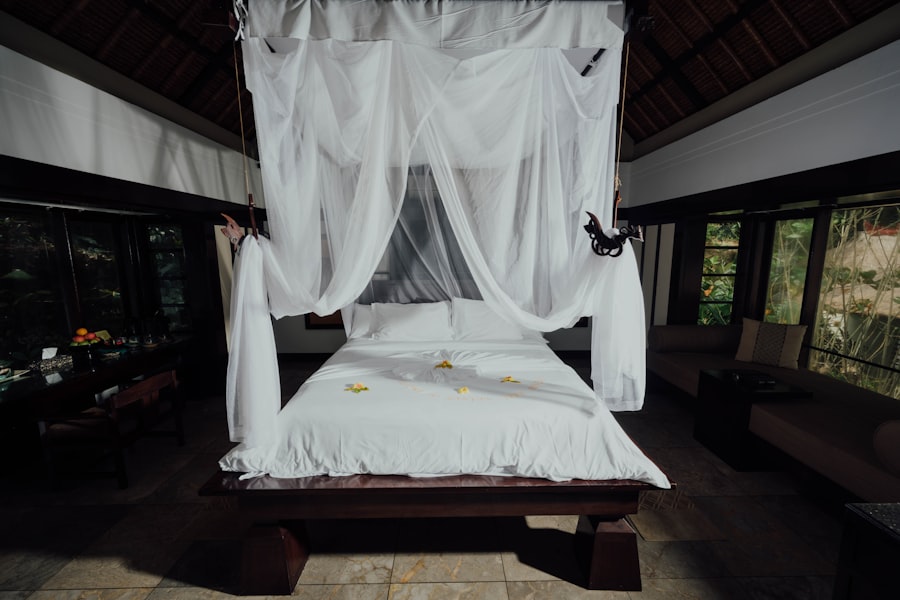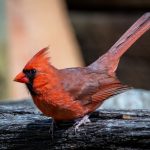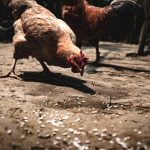Mosquitoes present a significant health risk to chickens as vectors of various diseases that can be harmful or fatal to poultry. Avian malaria, one of the most common and dangerous mosquito-borne diseases affecting chickens, can cause anemia, weakness, and death. Other diseases transmitted by mosquitoes include fowlpox, avian encephalitis, and West Nile virus, all of which can have severe impacts on chicken populations.
These diseases can spread quickly through flocks, resulting in substantial economic losses for poultry farmers. In addition to disease transmission, mosquito bites cause irritation, leading to stress and discomfort in chickens, which can negatively affect their overall health and productivity. Understanding these risks is crucial for poultry farmers to implement effective protective measures against mosquitoes.
The impact of mosquito-borne diseases extends beyond individual chickens to the entire poultry industry. Outbreaks can lead to decreased egg production, reduced growth rates, and increased mortality rates. Poultry farmers may incur significant costs for treatment and prevention measures, affecting their economic viability.
Moreover, some mosquito-borne diseases in poultry have zoonotic potential, posing risks to human health. This underscores the importance of awareness and implementation of effective strategies to mitigate the dangers mosquitoes pose to chicken flocks.
Table of Contents
- 1 Natural Prevention: Using Plants and Herbs to Repel Mosquitoes
- 2 Environmental Management: Eliminating Standing Water and Other Mosquito Breeding Sites
- 3 Physical Barriers: Installing Screens and Netting to Keep Mosquitoes Out
- 4 Chemical Control: Using Safe and Effective Insect Repellents for Chickens
- 5 Routine Maintenance: Keeping Coops and Yards Clean to Deter Mosquitoes
- 6 Monitoring and Surveillance: Regularly Inspecting and Addressing Mosquito Infestations
- 7 FAQs
- 7.1 What are the best ways to keep mosquitoes away from my chickens?
- 7.2 Which plants can I use to repel mosquitoes from my chicken coop?
- 7.3 How can I eliminate standing water to prevent mosquitoes from breeding?
- 7.4 Are there any natural mosquito repellents that are safe for chickens?
- 7.5 Can mosquito netting or screens be used to protect chickens from mosquitoes?
Key Takeaways
- Mosquitoes pose a significant threat to chickens, as they can transmit diseases such as West Nile virus and avian malaria.
- Planting mosquito-repelling herbs and plants such as lavender, citronella, and marigold can help naturally prevent mosquito infestations in chicken coops and yards.
- Eliminating standing water and other potential mosquito breeding sites in the environment is crucial for controlling mosquito populations around chickens.
- Installing screens and netting on coop windows and doors can effectively keep mosquitoes out and protect chickens from bites.
- Using safe and effective insect repellents specifically designed for chickens can provide chemical control of mosquito infestations in a poultry environment.
Natural Prevention: Using Plants and Herbs to Repel Mosquitoes
Using Mosquito-Repelling Plants and Herbs
One effective way to prevent mosquito infestations in chicken coops and yards is by using plants and herbs that are known for their mosquito-repelling properties. Plants such as citronella, lavender, marigold, and basil are known to naturally repel mosquitoes due to their strong scents and natural oils. These plants can be strategically placed around the chicken coop and yard to create a natural barrier against mosquitoes.
Additional Natural Mosquito Deterrents
Additionally, herbs such as rosemary, mint, and lemongrass can also be used to deter mosquitoes, either by planting them in the vicinity of the coop or by using their essential oils in homemade mosquito repellent sprays. By incorporating these natural mosquito-repelling plants and herbs into the chicken coop and yard, poultry farmers can effectively reduce the presence of mosquitoes and minimize the risk of mosquito-borne diseases affecting their flocks.
Introducing Natural Predators of Mosquitoes
In addition to using plants and herbs with mosquito-repelling properties, poultry farmers can also consider incorporating natural predators of mosquitoes into their environment. For example, introducing certain species of fish, such as gambusia or goldfish, into water sources near the chicken coop can help control mosquito larvae populations. These fish feed on mosquito larvae, effectively reducing the number of adult mosquitoes in the area. Furthermore, attracting insect-eating birds such as purple martins or swallows to the vicinity of the chicken coop can also help control mosquito populations naturally.
Creating a Balanced Ecosystem
By creating a habitat that is conducive to these natural predators of mosquitoes, poultry farmers can establish a balanced ecosystem that minimizes the presence of mosquitoes and reduces the risk of mosquito-borne diseases affecting their chickens.
Environmental Management: Eliminating Standing Water and Other Mosquito Breeding Sites

One of the most effective ways to prevent mosquito infestations in chicken coops and yards is by eliminating standing water and other potential mosquito breeding sites. Mosquitoes require standing water to lay their eggs and complete their life cycle, so by removing or properly managing sources of standing water, poultry farmers can significantly reduce mosquito populations in their environment. Common sources of standing water that can serve as mosquito breeding sites include stagnant ponds, puddles, water troughs, and clogged gutters.
By regularly inspecting the chicken coop and yard for these potential breeding sites and taking steps to eliminate them, poultry farmers can effectively reduce the risk of mosquito infestations and the spread of mosquito-borne diseases among their flocks. In addition to eliminating standing water, poultry farmers can also take steps to manage vegetation in the chicken coop and yard to reduce mosquito habitats. Overgrown grass, weeds, and dense vegetation provide ideal resting and breeding sites for mosquitoes, so it is important to regularly mow the lawn and trim vegetation in the vicinity of the coop.
By maintaining a well-manicured environment, poultry farmers can minimize potential mosquito habitats and create a less hospitable environment for these pests. Furthermore, removing debris and clutter from the chicken coop and yard can also help reduce potential mosquito breeding sites. By practicing good environmental management techniques, poultry farmers can effectively minimize the presence of mosquitoes in their environment and protect their flocks from the dangers of mosquito-borne diseases.
Physical Barriers: Installing Screens and Netting to Keep Mosquitoes Out
Another effective method for preventing mosquito infestations in chicken coops is by installing physical barriers such as screens and netting to keep mosquitoes out. Screens can be installed on windows, doors, and vents in the chicken coop to prevent mosquitoes from entering the enclosed space. Additionally, netting can be used to create a barrier around outdoor areas where chickens roam, such as run areas or outdoor enclosures.
By creating physical barriers that prevent mosquitoes from accessing the chicken coop and yard, poultry farmers can effectively reduce the risk of mosquito infestations and protect their flocks from the potential dangers of mosquito-borne diseases. In addition to screens and netting, poultry farmers can also consider using mosquito nets or cloths to cover water troughs and other water sources in the chicken coop and yard. This can help prevent mosquitoes from laying their eggs in standing water and reduce the risk of mosquito larvae developing in these areas.
By implementing physical barriers that limit mosquitoes’ access to potential breeding sites and resting areas, poultry farmers can effectively minimize the presence of mosquitoes in their environment and protect their chickens from the harmful effects of mosquito-borne diseases.
Chemical Control: Using Safe and Effective Insect Repellents for Chickens
While natural prevention methods are preferred, there are instances where chemical control may be necessary to manage mosquito infestations in chicken coops. However, it is important for poultry farmers to use safe and effective insect repellents that are specifically formulated for use around chickens. There are various insect repellent products available on the market that are safe for use around poultry when applied according to label instructions.
These products may include sprays, foggers, or granules that are designed to repel or kill mosquitoes without posing a risk to chickens or other animals in the environment. By using these safe and effective insect repellents, poultry farmers can effectively manage mosquito infestations in their chicken coops while minimizing any potential risks to their flocks. In addition to commercial insect repellent products, poultry farmers can also consider using natural insect repellents such as essential oils that are safe for use around chickens.
Essential oils such as citronella, eucalyptus, lavender, and peppermint have been shown to have insect-repelling properties and can be used to create homemade mosquito repellent sprays for use in the chicken coop and yard. These natural repellents provide an alternative to chemical control methods while still effectively managing mosquito infestations and protecting chickens from the potential dangers of mosquito-borne diseases. By using safe and effective insect repellents, poultry farmers can take proactive measures to control mosquito populations in their environment while ensuring the safety and well-being of their flocks.
Routine Maintenance: Keeping Coops and Yards Clean to Deter Mosquitoes

Regular Cleaning and Sanitation
Regular cleaning and sanitation practices are crucial for deterring mosquitoes and preventing infestations in chicken coops and yards. This includes regularly removing debris, clutter, and standing water from the area, as well as cleaning water troughs, feeders, and other equipment to prevent the accumulation of organic matter that can attract mosquitoes.
Proper Drainage and Maintenance
Maintaining proper drainage systems and repairing any leaks or water sources that may contribute to standing water can help minimize potential mosquito habitats in the environment. By implementing routine maintenance practices, poultry farmers can effectively deter mosquitoes from their chicken coops and yards while protecting their flocks from the dangers of mosquito-borne diseases.
Integrated Pest Management Strategies
In addition to routine cleaning and maintenance, poultry farmers should also consider implementing integrated pest management (IPM) strategies to control mosquito populations in their environment. This may include using biological control methods such as introducing natural predators of mosquitoes or utilizing environmentally friendly insecticides that target mosquito larvae without posing a risk to chickens or other animals in the area.
By incorporating IPM strategies into their pest management practices, poultry farmers can effectively control mosquito populations while minimizing any potential risks to their flocks or the environment. Routine maintenance combined with IPM strategies provides a comprehensive approach to deterring mosquitoes from chicken coops and yards while protecting poultry health and well-being.
Monitoring and Surveillance: Regularly Inspecting and Addressing Mosquito Infestations
Regular monitoring and surveillance are essential for identifying and addressing mosquito infestations in chicken coops and yards. Poultry farmers should routinely inspect their environment for signs of mosquito activity, such as adult mosquitoes, larvae, or breeding sites. This may involve conducting visual inspections of potential breeding sites such as standing water sources, vegetation, or areas with organic debris.
By regularly monitoring for signs of mosquito infestations, poultry farmers can promptly identify any issues and take proactive measures to address them before they escalate into larger problems. In addition to monitoring for signs of mosquito infestations, poultry farmers should also implement surveillance methods such as setting up mosquito traps or using larvicides to monitor and control mosquito populations in their environment. Mosquito traps can help capture adult mosquitoes and provide valuable information about population levels and species present in the area.
Larvicides can be used to target mosquito larvae in standing water sources without posing a risk to chickens or other animals in the environment. By implementing surveillance methods as part of their pest management practices, poultry farmers can gain valuable insights into mosquito populations in their environment and take targeted measures to address any infestations effectively. In conclusion, understanding the threat that mosquitoes pose to chickens is crucial for poultry farmers in order to protect their flocks from potential dangers such as mosquito-borne diseases.
By implementing natural prevention methods such as using plants and herbs with mosquito-repelling properties, practicing environmental management techniques to eliminate standing water and potential breeding sites, installing physical barriers such as screens and netting, using safe and effective insect repellents specifically formulated for use around chickens, implementing routine maintenance practices combined with IPM strategies, as well as regularly monitoring for signs of mosquito infestations through surveillance methods; poultry farmers can effectively deter mosquitoes from their chicken coops and yards while safeguarding their flocks from the harmful effects of mosquito-borne diseases. It is essential for poultry farmers to take proactive measures to manage mosquito populations in their environment in order to ensure the health and well-being of their chickens while minimizing any potential economic or public health implications associated with mosquito-borne diseases within the poultry industry.
If you’re looking for more tips on keeping your chickens safe and healthy, check out this article on choosing the right size door for your chicken coop. Ensuring that your coop is properly sealed and secure can also help keep mosquitoes and other pests at bay.
FAQs
What are the best ways to keep mosquitoes away from my chickens?
Some effective methods to keep mosquitoes away from your chickens include using mosquito repellent plants, installing mosquito netting or screens, and eliminating standing water where mosquitoes breed.
Which plants can I use to repel mosquitoes from my chicken coop?
Plants such as citronella, lavender, marigold, and basil are known to repel mosquitoes. You can plant these around your chicken coop to help keep mosquitoes at bay.
How can I eliminate standing water to prevent mosquitoes from breeding?
Regularly emptying and cleaning water containers, fixing any leaks or drainage issues, and using mosquito dunks or larvicides can help eliminate standing water and prevent mosquitoes from breeding near your chickens.
Are there any natural mosquito repellents that are safe for chickens?
Natural mosquito repellents such as essential oils (eucalyptus, citronella, and lavender) and herbal sprays can be used to keep mosquitoes away from chickens. It’s important to ensure that any repellents used are safe for chickens and do not cause any harm.
Can mosquito netting or screens be used to protect chickens from mosquitoes?
Yes, installing mosquito netting or screens around the chicken coop can help prevent mosquitoes from entering and bothering the chickens. This can be especially effective during peak mosquito seasons.
Meet Walter, the feathered-friend fanatic of Florida! Nestled in the sunshine state, Walter struts through life with his feathered companions, clucking his way to happiness. With a coop that’s fancier than a five-star hotel, he’s the Don Juan of the chicken world. When he’s not teaching his hens to do the cha-cha, you’ll find him in a heated debate with his prized rooster, Sir Clucks-a-Lot. Walter’s poultry passion is no yolk; he’s the sunny-side-up guy you never knew you needed in your flock of friends!







